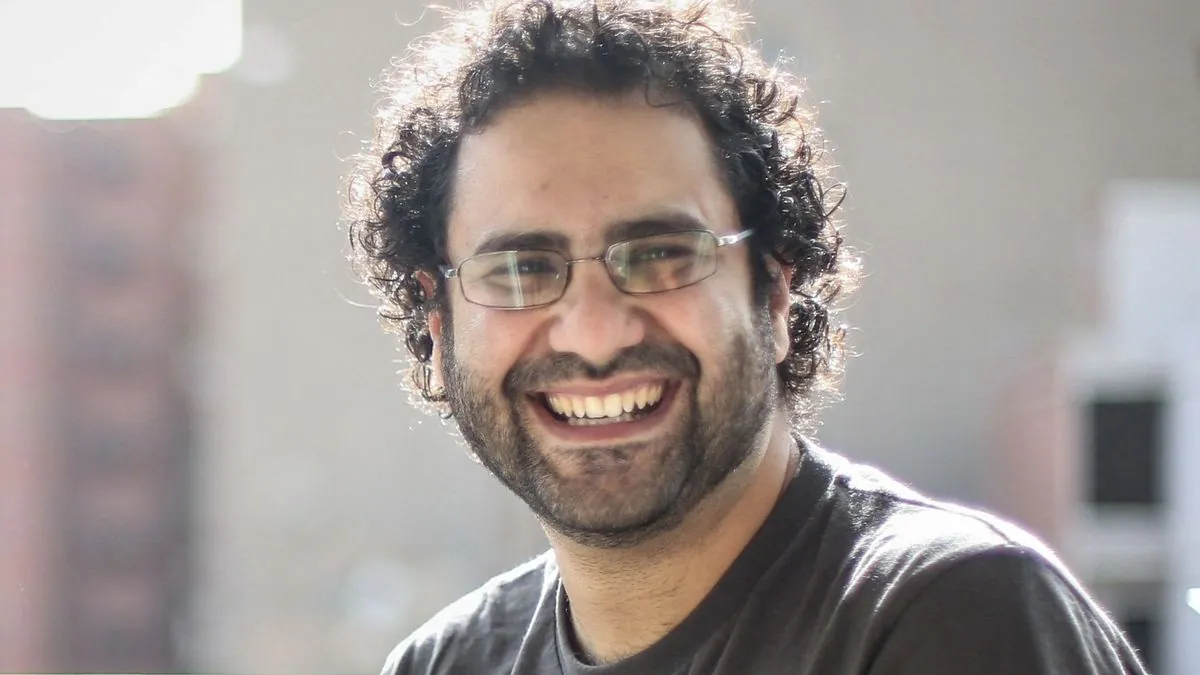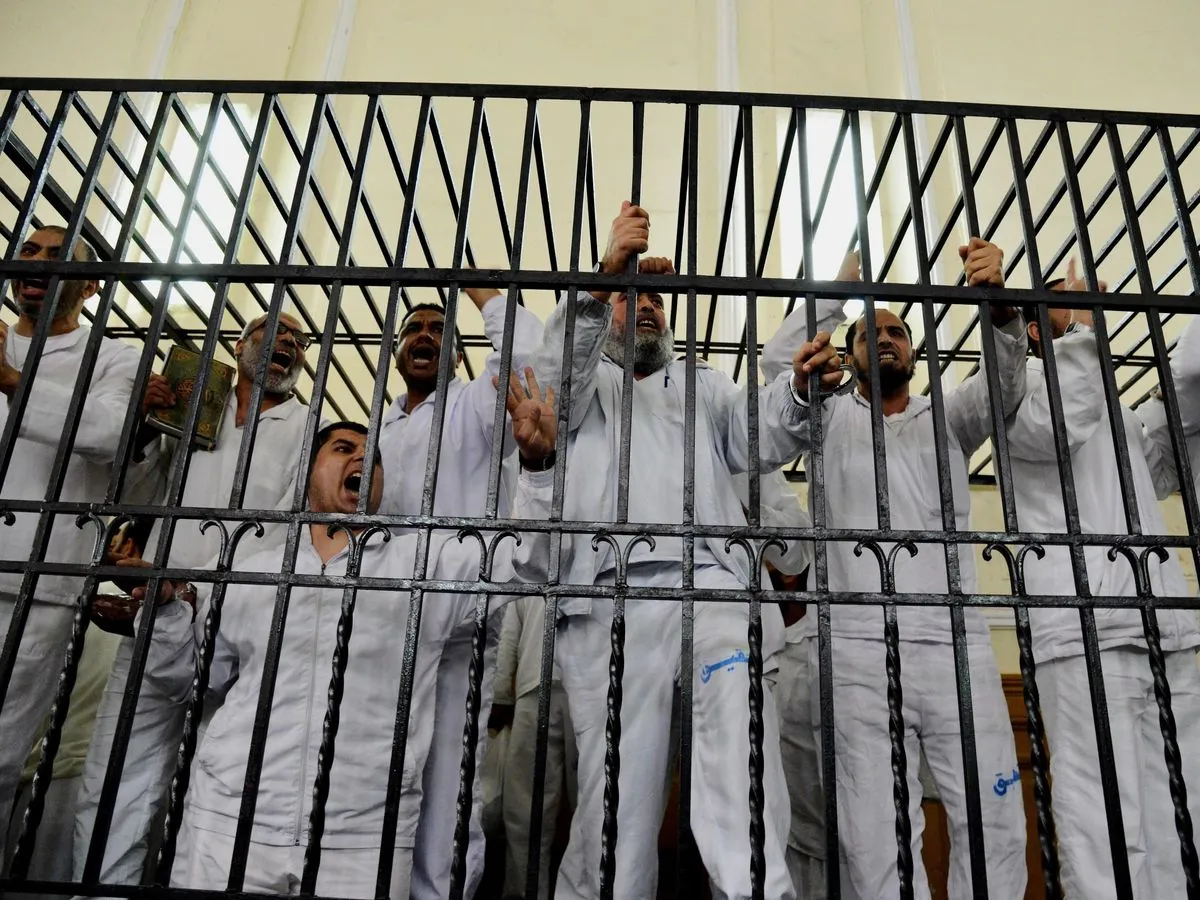Egyptian Activist's Release in Doubt as Sentence Nears End
Rights groups urge release of Alaa Abdel-Fattah as his 5-year sentence concludes. Concerns grow over potential extended detention of the prominent Egyptian dissident until 2027.

As the scheduled release of Alaa Abdel-Fattah approaches, human rights organizations and his family are intensifying their calls for Egyptian authorities to free the prominent activist. Abdel-Fattah, a key figure in Egypt's 2011 pro-democracy movement, has spent the majority of the past decade incarcerated, symbolizing the nation's regression towards authoritarian rule under President Abdel Fattah el-Sissi.
The 42-year-old dissident's current five-year sentence for allegedly disseminating false information is set to conclude on September 29, 2024. However, concerns are mounting that his release may be delayed until January 2027, according to information shared by his legal representative.
Abdel-Fattah's journey through Egypt's legal system began in 2014 when he was convicted of participating in an unauthorized protest and allegedly assaulting a law enforcement officer. After serving a five-year term and being briefly released in 2019, he was rearrested during a crackdown following rare anti-government demonstrations.
The activist's case has drawn international attention, particularly during the UN Climate Change Conference (COP27) held in Sharm el-Sheikh in 2022. Abdel-Fattah intensified his hunger strike to coincide with the event, refusing all calories and water. This action highlighted Egypt's suppression of free speech and political activity, issues that have persisted since the 2013 military coup led by el-Sissi.
Egypt's human rights record has been a subject of concern for international organizations. Human Rights Watch estimated in 2019 that up to 60,000 political prisoners were incarcerated in Egyptian prisons. The government's crackdown on dissent has included jailing thousands, virtually prohibiting protests, and implementing extensive social media monitoring.

The potential delay in Abdel-Fattah's release would contravene Egypt's penal code, which stipulates that time spent in pre-trial detention should be deducted from the total sentence. This principle is common in many legal systems globally and is designed to protect the rights of the accused.
Abdel-Fattah's dual Egyptian-British citizenship, obtained in 2022, adds complexity to his case. His sisters, Sanaa and Mona, have appealed to British authorities to intervene on their brother's behalf. At a recent press conference in London, they emphasized the urgency of securing his release, stating that each day Abdel-Fattah remains imprisoned beyond his sentence is a "grave atrocity."
The case of Alaa Abdel-Fattah continues to shine a spotlight on Egypt's human rights situation, challenging the international community to address the ongoing suppression of political dissent in the country.
"Each day after Sept. 29 that Abdel-Fattah spends behind bars is a grave atrocity on top of everything else he has had to endure."
As the world watches, the fate of Alaa Abdel-Fattah remains uncertain, serving as a litmus test for Egypt's commitment to human rights and the rule of law.


































